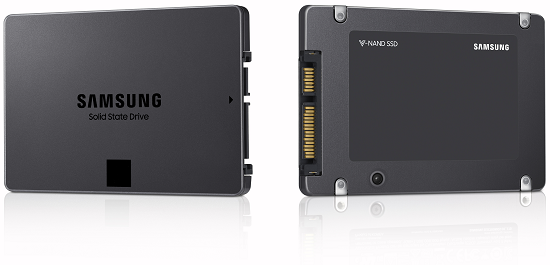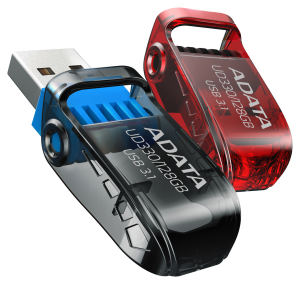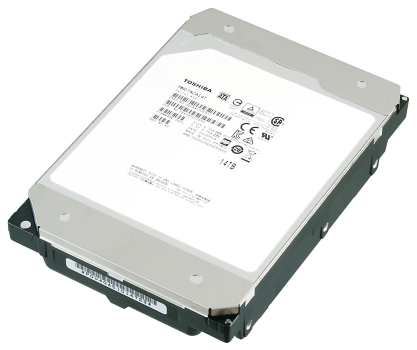- Details
- Flash Memory
Silicon Motion Technology Corporation ("Silicon Motion"), a global leader in designing and marketing NAND flash controllers and solid-state storage devices, today released the SM2270, a complete PCIe NVMe SSD controller solution which offers high performance, high capacity, high reliability and low latency SSD storage for enterprise and data center applications.
The dual-mode SM2270 is a complete SSD controller solution with customer specific or turnkey firmware that can support Open Channel storage implementations as well as standard NVMe protocols. In either mode, the SM2270 management technology enables ultra-high performance, guaranteed low latency, and more efficient use of storage capacity in high density, multi-tenant data center applications.
The controller specifications include:
- PCIe Gen 3 x 8 lanes, supporting standard NVMe 1.3 protocols
- Support Open Channel implementations such as the Microsoft Denali pre-standard
- 16 NAND flash channels and SSD capacity up to 16TB
- Powerful triple dual-core Arm® Cortex®-R5-based architecture for high data throughput
- Up to 800,000 IOPS in 4KB random read operation
- Support the latest 3D NAND, including 96-layer TLC and QLC flash, from all major NAND manufacturers.
- Details
- Flash Memory
Marvell today announced the industry's first NVMe over Fabric (NVMe-oF) SSD converter controller, the 88SN2400, for cloud and enterprise data centers. The 88SN2400 controller is designed and optimized to convert an NVMe solid state drive (SSD) into an NVMe-oF SSD, providing a revolutionary architecture that increases utilization and scalability of SSDs within the data center to ultimately lower total cost of ownership (TCO). By bringing low latency access over the fabric and exposing the entire SSD bandwidth to the network, the Marvell controller supports true scalable, high-performance disaggregation of storage from compute. The 88SN2400 utilizes a simple, low-power and compute-less Ethernet fabric instead of a traditional PCIe fabric controlled and managed by an enterprise-class server SoC with integrated 100GE controllers.
As data growth continues to soar, data centers are grappling with the increasing power consumption, complexity, and costs associated with the demand for greater storage bandwidth and capacity. However, compute and storage continue to be underutilized, with storage servers typically oversubscribed, resulting in increased capital expenditure and operational expenditure. The Marvell SSD converter controller allows greater flexibility for data center operators and designers to develop their infrastructure and enables them to meet evolving workload demands with optimized scalable units of disaggregated flash storage and storage class memory (SCM).
Add a comment- Details
- Flash Memory
Yangtze Memory Technologies Co., Ltd (YMTC), a new player in the NAND industry, today announced the market introduction of its ground-breaking technology - Xtacking, which will provide unprecedented NAND I/O performance, higher bit density and faster time-to-market.

With Xtacking, the periphery circuits which handle data I/O as well as memory cell operations are processed on a separate wafer using the logic technology node that enables the desired I/O speed and functions. Once the processing of the array wafer is completed, the two wafers are connected electrically through millions of metal VIAs (Vertical Interconnect Accesses) that are formed simultaneously across the whole wafer in one process step, using the innovative Xtacking technology, with limited increase in total cost.
Add a comment- Details
- Flash Memory
Liqid, leading provider of on-demand composable infrastructure technologies, announced that it will be demonstrating the industry’s first PCI-Express (PCIe) 4.0 NVMe solid state technology (SSD) at Flash Memory Summit 2018. Liqid will demonstrate multiple configurations of its Gen 4 PCIe Element SSDs, including the industry’s first Gen4 x16 NVMe storage solution with Dual Ported capability. By leveraging the newly available Gen4 PCIe interface, the Liqid Element solution delivers unprecedented data throughput and IOPS performance for artificial intelligence, machine learning, and other emerging, high-value applications.
“Transforming milliseconds into microseconds, Gen 4.0 PCIe solid-state solutions from Liqid provide consistent data performance and efficiency to handle the workloads associated with the Age of Artificial Intelligence,” said Sumit Puri, CEO and Cofounder, Liqid. “We are honored to be working with a wide array of industry-leading partners and customers to bring our expertise in PCIe fabrics to deliver supercharged solid-state performance and answer emerging challenges in the data center. Liqid is proud to build on our legacy of delivering award-winning PCIe-deployed infrastructure solutions to market.”
PCIe 4.0 NVMe solutions from Liqid deliver strong benefits across industry verticals, anywhere data performance is a prerequisite for success. Deployment of the long-awaited Gen 4 PCIe specifications will accelerate applications across multiple industry verticals, improving performance in today’s cloud-centric and big data compute environments. Gen4 NVMe will also drive emerging applications in machine learning and artificial intelligence, 8K digital media processing, virtual and augmented reality, and much more.
Add a comment- Details
- Flash Memory
 This week at Flash Memory Summit (FMS) 2018, LITE-ON Storage, an established leader in the rapidly expanding solid-state drive (SSD) industry, will showcase its first storage drive supporting Project Denali, Microsoft Corp.’s storage specification for cloud-based workloads. The new Open Channel AD2 series SSD was built as part of a collaboration with Microsoft and CNEX Labs.
This week at Flash Memory Summit (FMS) 2018, LITE-ON Storage, an established leader in the rapidly expanding solid-state drive (SSD) industry, will showcase its first storage drive supporting Project Denali, Microsoft Corp.’s storage specification for cloud-based workloads. The new Open Channel AD2 series SSD was built as part of a collaboration with Microsoft and CNEX Labs.
“LITE-ON is constantly testing new ways to improve the speed and efficiency of flash drives for customers of all sizes, and we see Project Denali as possibly accelerating these efforts,” said Darlo Perez, Managing Director, Americas region at LITE-ON Storage. “In early testing of an M.2 SSD built around the Denali spec, CNEX achieved a radical latency reduction of 95 percent, providing a potentially disruptive improvement in quality of service (QoS) for cloud computing.”
Project Denali is a standardization and evolution of Open Channel that defines the roles of SSD as opposed to the host in a standard interface. The SSD firmware interfaces by separating functionality for software-defined data layout and media management. For instance, media management, error correction, mapping of bad blocks and other functionality specific to the flash generation stay on the device. The host, meantime, receives random writes, transmits streams of sequential writes, maintains the address map and performs garbage collection.
Add a comment- Details
- Flash Memory
 Toshiba Memory Corporation, the world leader in flash memory, today announced that it has developed an native NVMe over Fabrics (NVMe-oF) SSD for direct Ethernet access to data for highly scalable storage architectures, conforming to the NVMe-oF Specification Version 1.0.
Toshiba Memory Corporation, the world leader in flash memory, today announced that it has developed an native NVMe over Fabrics (NVMe-oF) SSD for direct Ethernet access to data for highly scalable storage architectures, conforming to the NVMe-oF Specification Version 1.0.
With the new technology, Toshiba Memory has made it possible to simplify the hardware architecture of the JBOF (Just a Bunch of Flash) over an NVMe-oF network, resulting in higher performance, lower cost and lower power consumption compared to a conventional CPU-based hardware configuration.
The new SSD utilizes the Marvell® 88SN2400 NVMe-oF SSD converter controller, enabling dual-port 25Gbps Ethernet connectivity of high-performance U.2 NVMe SSDs.
Also, Toshiba Memory is utilizing an Ethernet JBOF prototype chassis, developed and built by Aupera Technologies Inc., to demonstrate the new NVMe-oF SSDs. The JBOF is powered by 1+1 redundant 100Gbit Ethernet switch units with dual 6x100 Gbit Ethernet uplinks, which enables 16M IOPS system performance (4KB Random Read), the fastest ever seen in the industry.
Add a comment- Details
- Flash Memory
Samsung Electronics Co., Ltd., the world leader in advanced memory technology, today announced that it has begun mass producing the industry’s first 4-bit (QLC, quad-level cell) 4-terabyte (TB) SATA solid-state drive (SSD) for consumers.

Based on 1-terabit (Tb) V-NAND with outstanding performance equivalent to the company’s 3-bit design, Samsung’s QLC SSD is expected to bring a new level of efficiency to consumer SSDs.
“Samsung’s new 4-bit SATA SSD will herald a massive move to terabyte-SSDs for consumers,” said Jaesoo Han, executive vice president of memory sales & marketing at Samsung Electronics. “As we expand our lineup across consumer segments and to the enterprise, 4-bit terabyte-SSD products will rapidly spread throughout the entire market.”
Add a comment- Details
- Flash Memory
 ADATA Technology, a leading manufacturer of high-performance DRAM modules, NAND Flash products, and mobile accessories today launched the UD230 and UD330 USB Flash drives. Featuring a capless, folding-cover design and a large lanyard hole for attaching to straps and keychains, they are easy-to-use and well-suited for on the go. The UD230 works in USB 2.0 and offers up to 64GB of storage, while the UD330 works in USB 3.1 and comes with up to 128GB storage. Both models are manufactured with the Chip-On-Board (COB) process, which allows them to be more compact in size and more resistant to impact, water, and dust. ADATA remains committed to its USB Flash drive global leadership role and will continue releasing new models as market needs evolve.
ADATA Technology, a leading manufacturer of high-performance DRAM modules, NAND Flash products, and mobile accessories today launched the UD230 and UD330 USB Flash drives. Featuring a capless, folding-cover design and a large lanyard hole for attaching to straps and keychains, they are easy-to-use and well-suited for on the go. The UD230 works in USB 2.0 and offers up to 64GB of storage, while the UD330 works in USB 3.1 and comes with up to 128GB storage. Both models are manufactured with the Chip-On-Board (COB) process, which allows them to be more compact in size and more resistant to impact, water, and dust. ADATA remains committed to its USB Flash drive global leadership role and will continue releasing new models as market needs evolve.
User-Friendly Folding-Cover Design and Lanyard Hole for Easy Carrying
Sporting a folding-cover design, the UD230 and UD330 remedy the universal dilemma of misplaced caps. The USB connector can be stored in the cover while not in use. This simple yet intuitive design helps make the UD230 and UD330 very satisfying to use on the go. In addition, both models come with a large lanyard hole for convenience and personalization, allowing users to attach them to lanyard straps or keychains for easy carrying.
- Details
- Flash Memory
 Silicon Power breathes new life into the memory card market with the announcement of three new card readers. The company aims to enhance the effectiveness and usability of SD and microSD cards across a number of industries. SP’s Mobile, Key, and Combo card readers pack a number of unique features and are ideal solutions for a number of uses.
Silicon Power breathes new life into the memory card market with the announcement of three new card readers. The company aims to enhance the effectiveness and usability of SD and microSD cards across a number of industries. SP’s Mobile, Key, and Combo card readers pack a number of unique features and are ideal solutions for a number of uses.
The Card Reader Advantage
In an age of cloud storage and disappearing physical memory storage solutions, SP stays committed to its customers’ needs. Card readers serve a number of purposes that SD and microSD cards can’t do alone. Card readers allow ease of use connectivity and can also help protect fragile cards from “wear and tear.” Without the card reader, the card alone is subject to damage. The new line of card readers are hot swap ready, so users can take out their cards without having to eject from their OS.
Glade Norman, SP’s Head of International Marketing, adds: “These card readers are the data bridge between devices and people. They're great solutions.”
Your Mobile Sidekick
The Mobile Card Reader connects a microSD card to any Type-C and Type-A device. With 3.1 technology, the Mobile Card Reader reaches speeds of 5Gbps and is ready for instant “plug and play.” A unique sandblasted zinc alloy gives the lightweight 10.7 gram Mobile Card Reader its gorgeous look. Users can connect Mobile Card Readers to any Type-C device and upload rich content from digital cameras, dash cameras, drones, hunting cams, GPS devices, and other digital videos. The Mobile will be available from the end of August, 2018.
- Details
- Hard Disks
Toshiba Electronic Devices & Storage Corporation (“Toshiba”), a committed technology leader, announces the MN07 Series 12TB and 14TB 3.5-inch hard disk drives for use in NAS platforms. The Toshiba MN07 Series utilizes a helium-sealed mechanical design to achieve the massive 14TB and 12TB capacity. The 14TB model improves power efficiency by approximately 55 percent (W/GB) over the previous 10TB “air” 7,200rpm mechanical designs.

The MN07 Series is designed for use in NAS appliances with eight or more drive bays and is suitable for NAS file and object storage applications that require disk drives with workload ratings of up to 180TB per year. The MN07 models feature vibration compensation technology and advanced Format (AF) 512e sector technology. Additionally, both devices offer 24/7 operability, superior reliability with MTTF of 1.0 Million hours, and are compatible with popular 3rd-party, 3.5-inch NAS enclosures.
Add a comment
